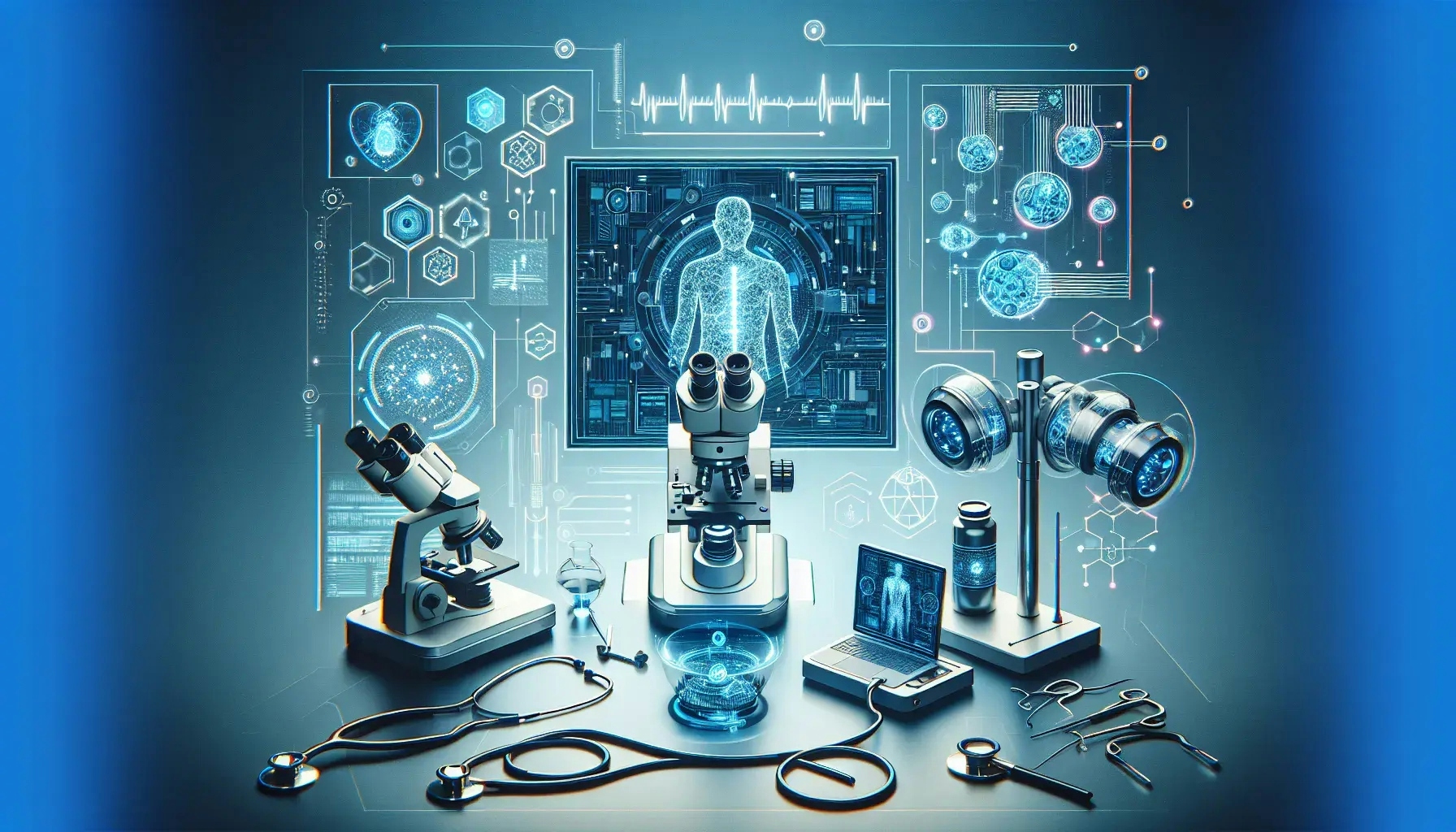The Role of AI in Modern Healthcare
Doctors Magazine

Welcome to the fascinating world of artificial intelligence (AI) and its transformative impact on modern healthcare. This blog post explores how AI is revolutionizing healthcare, from diagnostics to treatment, patient care, and beyond. We'll delve into the intricacies of AI applications, their benefits, challenges, and the future of AI in healthcare.
The Emergence of AI in Healthcare
AI's emergence in healthcare has been nothing short of revolutionary. It has brought about a paradigm shift in how healthcare providers diagnose, treat, and manage diseases. AI algorithms, with their ability to learn from and interpret complex data, are now assisting doctors in making more accurate diagnoses.
These algorithms are not only improving diagnostic accuracy but also speeding up the process. They can analyze vast amounts of data in a fraction of the time it would take a human. This efficiency is particularly beneficial in areas such as radiology, where AI can quickly identify abnormalities in imaging data that might be missed by the human eye.
Moreover, AI is also playing a crucial role in personalized medicine. It's helping doctors tailor treatments to individual patients based on their unique genetic makeup and health history. This personalized approach is improving treatment outcomes and reducing side effects.
AI in Patient Care and Management
AI's role extends beyond diagnosis and treatment. It's making significant strides in patient care and management. AI-powered chatbots, for instance, are providing patients with instant responses to their queries, improving patient engagement and satisfaction.
AI is also helping healthcare providers monitor patients' health in real-time. Wearable devices equipped with AI can track vital signs and alert healthcare providers if they detect any abnormalities. This real-time monitoring is particularly useful for patients with chronic conditions, as it allows for timely intervention and prevents complications.
Furthermore, AI is improving healthcare administration. It's streamlining scheduling, billing, and other administrative tasks, freeing up healthcare providers to focus more on patient care.
The Challenges of Implementing AI in Healthcare
Despite its numerous benefits, implementing AI in healthcare is not without challenges. One of the main hurdles is data privacy. AI algorithms require vast amounts of data to function effectively, raising concerns about patient confidentiality and data security.
Another challenge is the lack of standardized regulations for AI in healthcare. This lack of regulation can lead to misuse of AI and potential harm to patients. It's therefore crucial for regulatory bodies to establish clear guidelines for the use of AI in healthcare.
Moreover, there's the issue of trust. Many healthcare providers are hesitant to rely on AI for critical tasks, fearing that it might make mistakes. Building trust in AI's capabilities is therefore essential for its successful implementation in healthcare.
The Future of AI in Healthcare
Despite these challenges, the future of AI in healthcare looks promising. Advances in AI technology are leading to more sophisticated and accurate algorithms. These advances, coupled with the growing acceptance of AI in healthcare, are paving the way for more widespread use of AI.
One area where AI is expected to make significant strides is in predictive analytics. AI algorithms will be able to predict disease outbreaks, patient outcomes, and other health-related events with greater accuracy. This predictive capability will allow healthcare providers to take proactive measures and improve patient outcomes.
AI is also expected to play a crucial role in telemedicine. It will enable remote patient monitoring, virtual consultations, and other telemedicine services, making healthcare more accessible to people in remote areas.
The Ethical Considerations of AI in Healthcare
As AI continues to permeate healthcare, it's essential to consider the ethical implications. AI algorithms, for instance, should be designed to be fair and unbiased. They should not discriminate against patients based on their race, gender, or other characteristics.
Moreover, AI should be used to complement, not replace, human healthcare providers. It should assist healthcare providers in their work, not make critical decisions on its own. Ensuring that AI is used ethically in healthcare is crucial for maintaining trust in the system and ensuring patient safety.
Preparing for an AI-Driven Healthcare Future
As we move towards an AI-driven healthcare future, it's essential for healthcare providers to be prepared. They need to understand how AI works and how to use it effectively in their practice. This understanding will require ongoing education and training.
Healthcare providers also need to be involved in the development of AI algorithms. Their input can ensure that the algorithms are clinically relevant and meet the needs of patients. Involving healthcare providers in the development process can also help build trust in AI.
Moreover, healthcare providers need to advocate for their patients. They need to ensure that AI is used ethically and that patient data is protected. Advocacy will be crucial in ensuring that AI benefits all patients, not just a select few.
Embracing the AI Revolution in Healthcare
AI is transforming healthcare in profound ways. It's improving diagnosis, treatment, patient care, and administration. Despite the challenges, the future of AI in healthcare is promising. However, it's crucial for healthcare providers to understand and embrace this technology. They need to be prepared for an AI-driven healthcare future and ensure that AI is used ethically and benefits all patients. The AI revolution in healthcare is here, and it's here to stay.